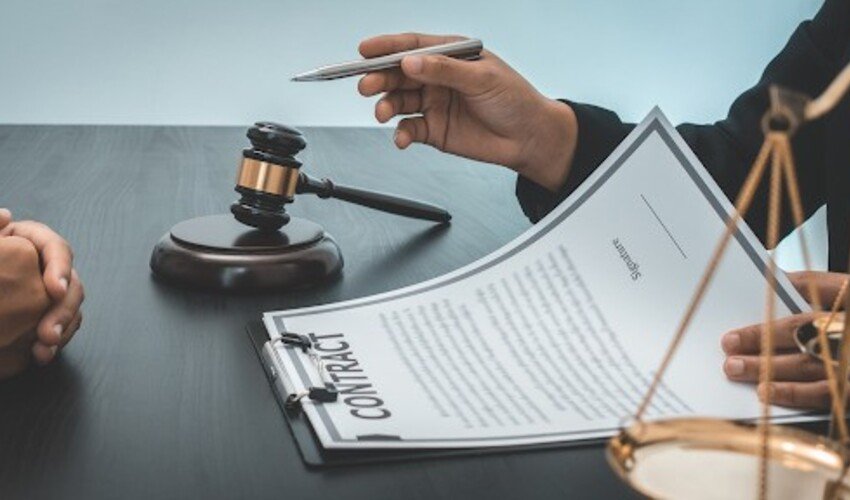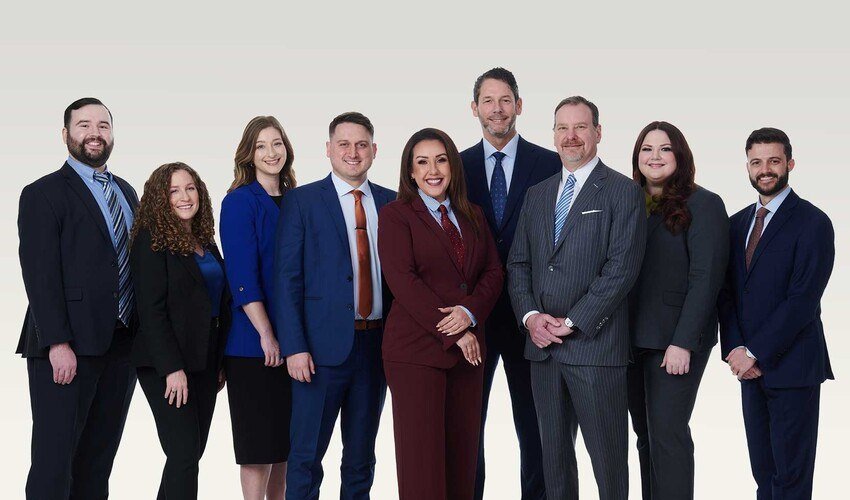You know what? The legal world isn’t the same anymore. Gone are the days when defense attorneys could win cases with just sharp wit and a briefcase full of papers. Today’s criminal defense landscape demands something more, something digital, sophisticated, and frankly, expensive.
Your clients expect you to leverage every technological advantage available. They’re not wrong to expect this, either. Criminal defense lawyer technology has shifted from “nice to have” to “essential” faster than most practitioners anticipated. Technology equipment for lawyers now determines whether you can deliver the caliber of representation that makes the difference between freedom and incarceration.
Core Criminal Defense Attorney Technology for Managing Cases
Let’s be real here, you can’t wing it anymore when it comes to case management. Are the attorneys still shuffling through Manila folders and sticky notes? They’re getting crushed by competitors who’ve embraced digital workflows.
Here’s something that’ll blow your mind: introducing DNA evidence for crimes like burglary and theft increased detection rates by nearly four times. That’s the power of proper technology implementation; it literally transforms outcomes.
Fort Lauderdale presents unique challenges. You’re dealing with one of Florida’s most complex legal environments, where drug crime cases intersect with international trafficking routes and diverse communities. The stakes? They’re astronomical.
If you’re practicing as a Fort Lauderdale Drug Crime Attorney, your success hinges on robust case management systems that track evidence chains, organize witness testimonies, and never miss a procedural deadline. Miss one detail in these high-stakes cases, and your client pays the price.
Software Solutions for Legal Case Management
Cloud-based practice management has completely revolutionized how you handle your caseload. These aren’t just fancy digital filing cabinets; they’re integrated command centers that connect client communications, document storage, and scheduling into one cohesive system.
Real-time collaboration features mean your entire defense team stays synchronized. No more playing phone tag or wondering if everyone has the latest version of a document. Client portals maintain attorney-client privilege while keeping your clients informed and engaged in their defense.
Document Management and Discovery Tech Arsenal
But wait, there’s more complexity ahead. You’re drowning in digital evidence, aren’t you? Police reports, surveillance footage, social media records, and text message threads that stretch back months. Without proper systems, this avalanche of information becomes your enemy instead of your weapon.
Digital evidence management systems handle this chaos with military-grade security. E-discovery platforms use AI-powered search capabilities to find the needle in the haystack, that one piece of evidence that changes everything. Email communications, text messages, social media posts, these tools process it all.
Communication Technology for Client Relations
Once you’ve got your evidence organized, maintaining secure client communication becomes your next battlefield. Encrypted messaging platforms protect sensitive discussions while giving clients convenient access to their legal team.
Video conferencing isn’t optional anymore; it’s survival. Clients face travel restrictions, incarceration, or simply live far away. Client relationship management systems track every interaction, helping you build stronger defenses through deeper client understanding.
Courtroom Technology Arsenal for Defense Attorneys
All that behind-the-scenes technology means nothing if you can’t present compelling arguments when it matters most. Modern juries expect polished, professional presentations that make complex evidence digestible.
Presentation and Visual Technology
Courtroom technology equipment has evolved into sophisticated presentation systems that transform how you argue cases. Portable projection systems let you manipulate evidence in real-time, highlighting crucial details that might slip past distracted jurors.
Professional legal presentation software creates compelling visual narratives. Timeline creation, evidence mapping, and witness statement comparisons. These tools help you tell your client’s story more effectively than words alone ever could.
Digital Evidence Presentation Arsenal
Creating stunning visuals is just step one. You also need specialized tools for presenting complex digital evidence in ways that connect with judges and juries emotionally. Evidence display systems handle multiple file formats while maintaining strict chain-of-custody requirements.
Real-time annotation software lets you highlight important details during testimony. This keeps juries engaged with technical evidence instead of losing them in confusing technical jargon.
Court Recording and Transcription Solutions
Getting more sophisticated with evidence presentation means you also need better documentation of proceedings. The contract with Trinity promises Bermuda Police will receive lab results within 30 days, contrasting sharply with the previous lengthy delays investigators faced.
Digital audio recording captures every spoken word, creating permanent records for appeals. Voice recognition technology provides real-time transcription, helping you track testimony as it unfolds without missing crucial details.
Communication and Collaboration Technology for Legal Teams
With thorough research complete, you need secure communication technologies to coordinate with team members, experts, and clients while maintaining strict confidentiality. Modern legal practice requires seamless collaboration across multiple locations and time zones.
Secure Communication Systems
Attorney-client privilege protection tools ensure all communications remain confidential and legally protected. Encrypted email platforms provide secure channels for sensitive document sharing and case discussions.
Secure phone and messaging apps allow communication with clients facing custody or surveillance. End-to-end encryption prevents unauthorized access to sensitive conversations.
Remote Work and Virtual Meeting Solutions
Protecting attorney-client communications is paramount, but today’s legal environment also demands flexible solutions enabling effective collaboration regardless of location or circumstances. Virtual private network technology ensures secure access to case files from anywhere.
Cloud-based collaboration platforms allow defense teams to work together on case preparation regardless of physical location. Remote desktop access provides secure connections to office systems from court or client meetings.
Expert Witness Coordination Technology
As remote collaboration becomes standard, specialized platforms for coordinating expert witnesses have become essential for complex criminal defense cases. Expert scheduling and management software streamlines the process of coordinating multiple professionals.
Virtual testimony platforms enable expert witnesses to participate remotely when travel isn’t feasible. These systems maintain a formal courtroom atmosphere while providing technical capabilities for complex evidence presentation.
Mobile Technology Solutions for Criminal Defense Practice
Office-based communication systems provide a collaboration backbone, but criminal defense work often requires accessing critical information while investigating cases in the field. Modern smartphones and tablets have become indispensable tools for practicing attorneys.
Smartphone and Tablet Applications
Mobile apps provide instant access to case information, court calendars, and client communications. Legal practice management mobile apps sync with desktop systems, ensuring you always have current information available.
Court calendar and deadline tracking prevent missed filings that could damage client cases. Mobile document scanning and editing capabilities allow immediate evidence capture and processing.
Portable Technology Equipment
Mobile apps provide instant access, but you also need reliable, portable hardware solutions that withstand fieldwork demands and court appearances. Laptop and tablet specifications for legal work must include sufficient processing power and battery life for extended use.
Mobile hotspot and connectivity solutions ensure internet access from remote locations. Portable charging and power solutions keep devices operational during long court sessions or investigation activities.
Technology Budget Planning and Implementation Strategies
Understanding emerging technologies is only valuable if you can strategically plan and budget for implementation in ways that provide measurable returns on investment. Successful technology adoption requires careful planning and realistic budgeting.
Cost-Effective Technology Solutions for Solo Practitioners
Budget-friendly software alternatives provide essential functionality without enterprise-level costs. Solo practitioners can access powerful tools through subscription models that spread costs over time rather than requiring large upfront investments.
Leasing vs. purchasing equipment decisions depend on usage patterns and cash flow considerations. ROI analysis for technology investments helps you prioritize spending on tools providing the greatest benefit.
Technology Support and Maintenance Systems
Even carefully planned technology infrastructure requires ongoing support and maintenance systems, ensuring consistent performance and protecting against unexpected failures that could disrupt critical case work. IT support service options range from basic help desk services to comprehensive managed IT solutions.
Software update and maintenance protocols ensure systems remain secure and functional. Technology disaster recovery planning protects against data loss and system failures that could compromise client cases.
Making Smart Technology Choices for Your Practice
Look, here’s the bottom line: modern criminal defense requires strategic technology adoption that balances functionality with budget constraints. The most successful attorneys don’t chase every shiny new gadget; they carefully select tools that directly improve client outcomes and practice efficiency.
Technology equipment for lawyers continues evolving at breakneck speed, making ongoing education and adaptation essential for staying competitive in today’s legal environment. The technology choices you make today will determine whether you thrive or struggle in tomorrow’s increasingly digital legal profession.
Common Questions About Criminal Defense Technology
-
How much should criminal defense lawyers budget for technology equipment annually?
Most solo practitioners should budget 3-5% of gross revenue for technology, while larger firms typically invest 5-8% annually in hardware, software, and support services.
-
Which legal technology tools provide the best return on investment for defense attorneys?
Case management software and secure communication platforms typically offer the highest ROI by improving efficiency and reducing administrative overhead costs significantly.
-
What cybersecurity measures are most critical for criminal defense practices?
Multi-factor authentication, encrypted file storage, and regular security training for staff represent the most important cybersecurity investments for protecting client confidentiality.
Read Dive is a leading technology blog focusing on different domains like Blockchain, AI, Chatbot, Fintech, Health Tech, Software Development and Testing. For guest blogging, please feel free to contact at readdive@gmail.com.





